Physical Address
304 North Cardinal St.
Dorchester Center, MA 02124
Physical Address
304 North Cardinal St.
Dorchester Center, MA 02124
Whether you are following a low-carbohydrate diet or simply want to increase your protein intake, there are a variety of high-protein, low-carb foods to choose from.

Numerous high-protein, low-carb foods are available that provide benefits extending beyond their impressive protein content. Options like canned tuna, edamame, Greek yogurt, cheddar cheese, pumpkin seeds, and pea protein powder can help you achieve your daily protein targets while keeping carbohydrate intake minimal.
Dietary approaches that emphasize protein-rich foods while restricting carbohydrate sources can support weight management, enhance blood sugar control, and lower cardiovascular risk factors.

Eggs rank among the most nutritionally complete foods available. They contain essential nutrients including vitamin B12, selenium, and vitamin A. Eggs deliver high protein content with minimal carbohydrates. Beginning your day with two eggs supplies your body with 12.56 grams of satisfying protein and under 1 gram of carbohydrates.
Nutritional Profile per large egg:
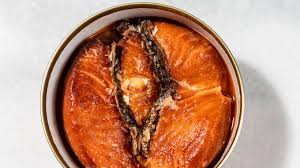
Canned salmon contains zero carbohydrates while providing exceptional protein levels. A 3-ounce portion delivers nearly 20 grams of protein. This same serving contains 4.27 grams of omega-3 fatty acids, which help control inflammation and boost immune function. Salmon also provides abundant vitamins B12 and B6, selenium, and potassium.
Nutritional Profile per 3-oz serving:
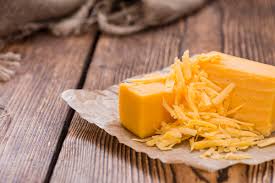
Various cheese types, including cheddar, contain minimal carbohydrates while offering high levels of fat, protein, calcium, and zinc. A single ounce of cheddar cheese provides 15% of your daily calcium requirements. This essential mineral supports bone, muscle, and cardiovascular health. Cheese works well as a high-protein, low-carb snack or as an addition to keto-friendly meals for increased fat content.
Nutritional Profile per 1 oz:

Protein powders offer a simple method to increase protein consumption. Whey protein isolate provides highly absorbable protein with zero carbohydrates. Choose unsweetened varieties or those sweetened with sugar substitutes like monk fruit. Avoid sugar-sweetened protein powders as they contain higher carbohydrate levels.
Nutritional Profile per 30-g serving:
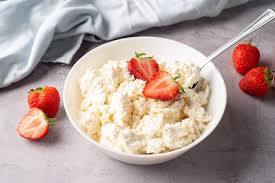
Cottage cheese serves as a flexible dairy product that can be eaten alone as a high-protein, low-carb snack or incorporated into recipes for enhanced nutrition. It contains multiple nutrients but is particularly rich in vitamin B12 and selenium. Selenium acts as a crucial mineral for thyroid function and serves as a potent antioxidant. One cup of 2% cottage cheese meets 49% of your daily selenium needs.
Nutritional Profile per cup:
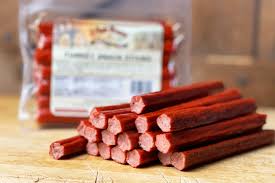
Packaged turkey sticks provide a high-protein, low-carb snacking choice that’s shelf-stable and portable. Their protein richness makes them a filling snack suitable for storage in your vehicle, desk, or bag.
Nutritional Profile per stick:
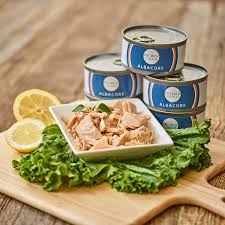
Canned tuna represents another zero-carbohydrate protein choice that’s convenient for meals or snacks on low-carbohydrate eating plans. Mix canned tuna with mayonnaise, Greek yogurt, or mashed avocado and pair with vegetables or flaxseed crackers. Canned tuna’s shelf-stability allows you to stock this pantry essential without spoilage concerns.
Nutritional Profile per 3-oz serving:
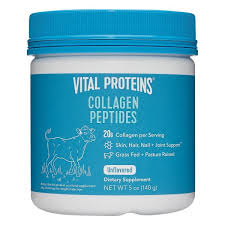
Collagen peptides can enhance the protein content of smoothies, coffee, baked items, overnight oats, and energy balls. They contain no carbohydrates while being protein-rich. Regular collagen peptide consumption may support skin, bone, and joint health.
Nutritional Profile per 14-g serving:

Most plant-based protein sources like beans and lentils are carbohydrate-heavy. Tofu, a soy product, provides high protein with low carbohydrates. It’s an excellent choice for plant-based dieters seeking low-carb protein alternatives. Tofu can be added to both sweet and savory preparations, from stir-fries to desserts, to increase protein content. Tofu also supplies nutrients important for plant-based dieters, including calcium, selenium, zinc, and iron.
Nutritional Profile per 3-oz serving:
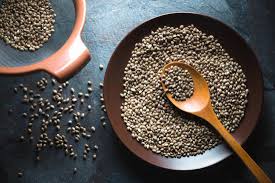
Hemp seeds offer another plant-based protein source with low carbohydrate content. Beyond protein, hemp seeds provide abundant magnesium, zinc, and beneficial fats. Add hemp seeds to salads and smoothies. They’re also used in creating vegan-friendly, protein-rich products like hemp milk and hemp protein powder.
Nutritional Profile per 30-g serving:
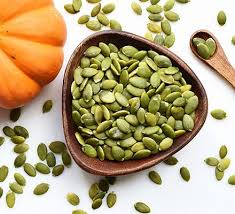
Pumpkin seeds contain nutrients essential for health. A 3-ounce serving provides 37% of daily magnesium needs. This vital mineral helps control blood sugar, blood pressure, and stress levels. Pumpkin seeds can be integrated into low-carbohydrate eating plans as a versatile and convenient plant-based protein source.
Nutritional Profile per 1 oz:
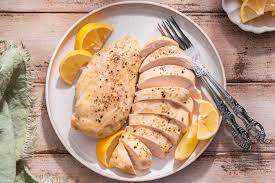
Chicken breast ranks as one of America’s most popular protein sources. It’s adaptable, protein-rich, vitamin and mineral-dense, and carbohydrate-free. Chicken breast serves as a foundation in many low-carbohydrate eating plans. Use chicken breast to boost protein content in salads, soups, stir-fries, and other dishes.
Nutritional Profile per small skinless breast:
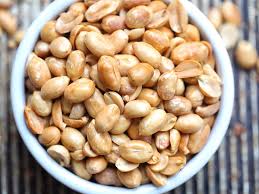
Peanuts are low-carbohydrate legumes that provide plant-based protein. They contain abundant folate, vitamin E, magnesium, phosphorus, zinc, and copper. Research indicates peanuts can help reduce cholesterol levels, making them beneficial for cardiovascular health.
Nutritional Profile per 1 oz:
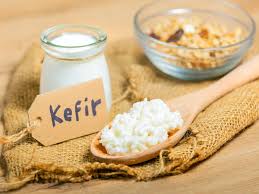
Kefir is a fermented yogurt beverage with high protein and relatively low carbohydrates. It’s abundant in probiotics such as lactic acid bacteria (LAB). These beneficial microorganisms may enhance digestive health. Try incorporating kefir into smoothies or consuming it alone as a satisfying snack.
Nutritional Profile per cup of low-fat, plain:
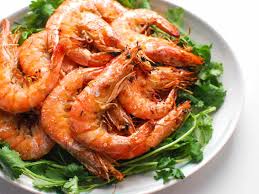
Including seafood like shrimp in your diet can increase your intake of vitamin B12, selenium, zinc, and protein. Shrimp contains minimal carbohydrates. Enjoy it in various low-carbohydrate recipes including salads, soups, stir-fries, and lettuce wraps.
Nutritional Profile per 3-oz serving:
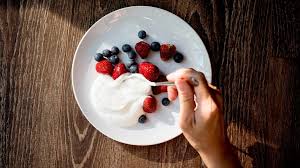
Greek yogurt delivers more than double the protein content found in regular yogurt. It’s also low in carbohydrates and has a thicker, more satisfying consistency than regular yogurt. Greek yogurt provides abundant vitamin B12, calcium, and vitamin A. Enjoy Greek yogurt as a snack or incorporate it into soups and smoothies to enhance protein content.
Nutritional Profile per 7-oz serving of low-fat, plain:
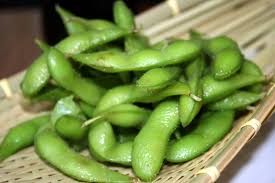
Edamame are young soybeans that provide convenient protein for plant-based dieters. Unlike most plant-based protein sources, edamame is relatively low in carbohydrates. Black beans contain over 40 grams of carbohydrates per cup, while an equivalent serving of edamame has 13.8 grams. Edamame is also high in fiber, which promotes beneficial bacteria growth and protects against colorectal cancer.
Nutritional Profile per cup:
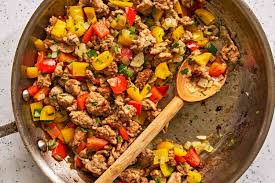
Ground turkey can be purchased in bulk and frozen, ensuring you always have a high-protein, low-carb option for meals. Serve turkey burgers over salads or in lettuce wraps, or top zucchini noodles with turkey meatballs.
Nutritional Profile per 3-oz serving:
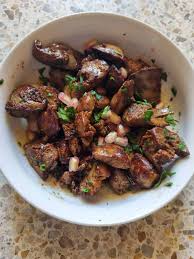
Organ meats like chicken liver are rich in essential nutrients including vitamins A and B12 and folate. A 3-ounce serving meets your daily requirements for all three nutrients while delivering over 20 grams of protein and less than 1 gram of carbohydrates.
Nutritional Profile per 3-oz serving:
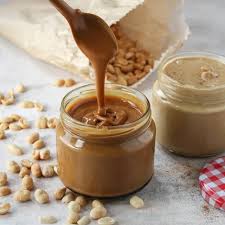
Peanut butter is a protein-rich spread that complements both sweet and savory ingredients. It’s relatively low in carbohydrates while high in healthy fats and protein. Spread peanut butter on celery sticks for a crunchy, filling snack. Add peanut butter to low-carbohydrate protein shakes for enhanced nutrition and flavor.
Nutritional Profile per 2-tbsp serving:
TO READ MORE, OPEN THE LINK BELOW:
https://www.health.com/high-protein-low-carb-foods-to-try-8406516